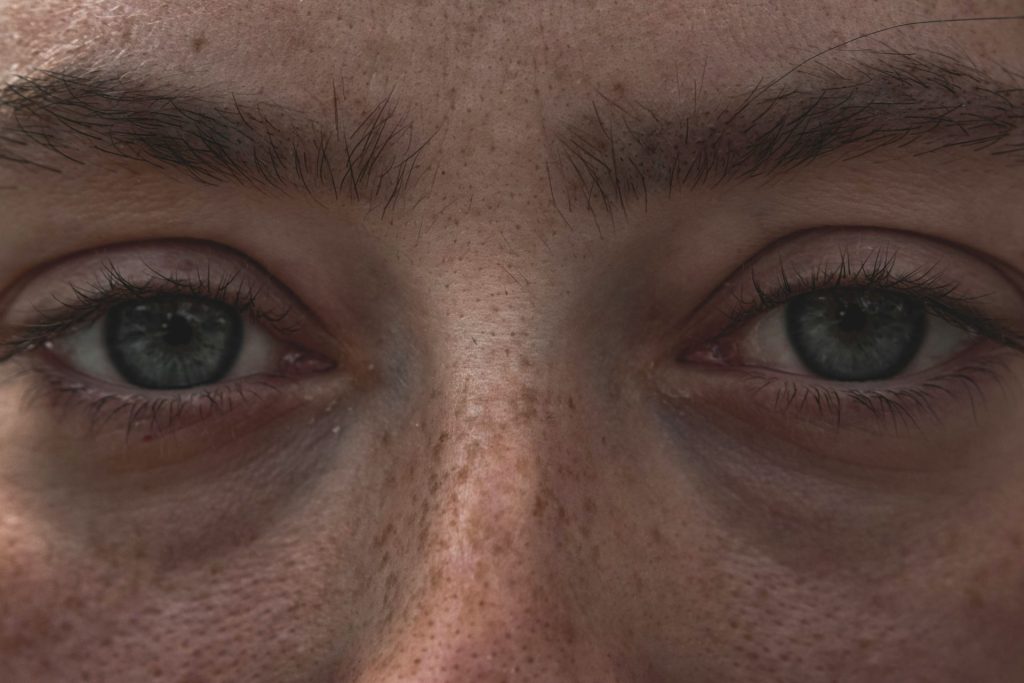Navigating the complex U.S. immigration system can be a daunting challenge, especially for those who have been victims of abuse or crime. However, there are two key legal remedies that offer protection and a possible path to permanent residency: the VAWA Visa and the U Visa.
In this Jaskot Law article, we explain the difference between VAWA Visa and U Visa to understand which of these options may be more suitable for each petitioner’s particular situation. In addition, our team of experienced attorneys is available to help you navigate the complex U.S. immigration process.
Table of Contents
Understanding the difference between VAWA and U Visa
When seeking protection in the United States, it is necessary to know that there are two types of immigration relief available to victims of violence and crime, known as the VAWA Visa and the U Visa.
While both remedies help protect people who have been abused or suffered certain crimes, they differ in their purpose and eligibility criteria, which are necessary to understand in order to make a successful application.
On the one hand, VAWA allows certain victims of domestic abuse atthe hands of U.S. citizens or lawful permanent residents to apply for permanent residence without needing the cooperation of the abuser in the process. This protection extends to spouses, children, and even some parents of U.S. citizens.
On the other hand, the U Visa is designed for victims of certain crimes, who have suffered substantial physical or mental abuse and are willing to assist in the investigation or prosecution of the crime. The U Visa does not require the perpetrator to be a U.S. citizen or permanent resident, making it accessible to a broader group of victims.
Both options are crucial tools to protect those who need it, that is why we will now delve into the characteristics, requirements, benefits, and the application process of both resources.

VAWA Visa, what is it?
To understand what the VAWA Visa is, we must mention that it is not a visa per se, but rather a provision under the Violence Against Women Act. This provision makes it possible for victims of abuse to obtain immigration status independently and without the cooperation of their abuser.
This immigration relief is especially valuable in protecting spouses, children and even parents of U.S. citizens or permanent residents who have been subjected to domestic abuse.
In addition, VAWA allows these victims to eventually have the ability to obtain a Green Card in the United States without the intimidation or control of the abuser. That is why VAWA is considered a vital legal remedy that offers safety and autonomy to victims, ensuring that they can leave abusive environments without fear of retaliation related to their immigration status.
Requirements for obtaining a VAWA Visa
In order to make a VAWA application, it is necessary to know the VAWA requirements that apply to a primary beneficiary and those that apply to a derivative beneficiary.
- Principal beneficiary
- Be the spouse, or a child under 21 years of age, of a U.S. citizen or lawful permanent resident.
- Provide evidence attesting to the kinship relationship with the citizen or legal permanent resident.
- Provide evidence of the abuse suffered, including police reports, protection orders, medical records, testimonies, photographs, among others.
- Provide proof that you are living in the United States at the time you file your VAWA application, or prove that you have temporarily left the country because of the abuse you suffered.
- Derivative beneficiary
- Provide corroborating evidence of relationship to the primary beneficiary, i.e., child under 21 years of age, unmarried child over 21 years of age who was abused prior to age 21, or other relatives who meet the eligibility criteria.
- Provide evidence of the mistreatment suffered by means of relevant documents.
VAWA Visa Application Process
In order to apply for a VAWA Visa, it is essential to comply with the requirements stipulated by the U.S. government and to take into account the steps detailed below:
STEP 1. Gathering evidence
First, it will be necessary to gather solid evidence and proof of the mistreatment or abuse suffered and inflicted by a U.S. citizen or lawful permanent resident. In this instance, police reports, orders of protection, medical records, testimony, photographs, among other evidence may be used.
STEP 2. Additional documentation
Second, the person making the application must gather all additional documentation as appropriate, including documents certifying and supporting the relationship to the U.S. citizen, as well as testimony to support his or her application.
STEP 3: Complete the application
Third, you must carefully read and complete Form I-360. Form I-360 Petition for Self-Petition under the Violence Against Women Act. You must then submit your application to the United States Citizenship and Immigration Services (USCIS).
STEP 4: USCIS Review
Finally, the VAWA petitioner should wait for USCIS to review the submitted application and watch for any additional evidence or information that USCIS may require.
Once USCIS processes the VAWA Visa application, you will be provided with an appointment and asked to attend the biometric data collection to vouch for your identity. Once the review is complete, USCIS will issue a notice detailing the approval or denial of the application. If the application was approved, the individual may then apply for a Work Authorization.
VAWA Visa Benefits
Once a VAWA Visa is obtained, it will allow individuals to access a number of benefits, including the following:
- Protection in the United States. The person will have legal rights and will be able to live in the United States without fear of deportation.
- Obtain Employment Authorization. A person may obtain Employment Authorization to work legally in the United States under VAWA.
- Accessing Public Benefits. Individuals under VAWA may be eligible for certain public benefits, including Medicaid, Medicare, and food assistance.
- Permanent residency in the United States. After obtaining the VAWA Visa, a beneficiary may begin applying for permanent residency in the United States.

U Visa, who does it protect?
When it comes to seeking protection in the United States, we should know that the U Visa is a tool designed to protect victims of certain crimes who are willing to cooperate with authorities in the investigation or prosecution of such crimes.
This visa offers temporary legal status, which is a relief and a path to safety and access to certain federal benefits. In addition, this visa allows victims to apply for lawful permanent resident status after meeting certain requirements.
This mechanism not only seeks to protect victims, but also to strengthen law enforcement’s ability to investigate and prosecute crimes by encouraging cooperation from immigrant communities.
Crimes covered by the U Visa include the following: stalking, assault with a weapon, sexual assault, murder, murder, blackmail, abusive sexual content, false imprisonment, sexual exploitation, extortion, foreign labor recruitment fraud, involuntary manslaughter, incest, witness tampering, female genital mutilation, obstruction of justice, perjury, prostitution, kidnapping, criminal unlawful restraint, kidnapping, involuntary servitude, hostage taking, torture, forced labor, slave trade, human trafficking, rape, domestic violence.
Requirements for obtaining a U Visa
Those who have suffered any type of crime may apply for the U Visa as long as they meet the requirements mentioned below:
- Have been the victim of a qualifying crime. Qualifying crimes include various forms of physical or mental abuse, sexual assault, domestic violence, kidnapping, and others.
- Be able to provide information about the crime of which he/she has been a victim and be willing to cooperate with the authorities in the investigation of the crime.
- Be deemed eligible and not pose a threat to national or public safety.
- The crime took place in the territory of the United States.
U Visa Application Process
In order to apply for a U Visa, it is necessary to follow several crucial steps that require meticulous attention and proper documentation.
STEP 1. Complete the corresponding request
First, the applicant must file Form I-918, Petition for U Non-immigrant Status, with the U.S. Citizenship and Immigration Services (USCIS).
STEP 2. Additional documentation
Any additional documentation should also be prepared in detail. Additional information should include a detailed personal account of the crime and its impact on the applicant, proof of identity, and, if applicable, forms for derivative family members.
STEP 3. Eligibility
Your application must also include Form I-918, Supplement B, certified by an authority confirming that the applicant has been a victim of a qualifying crime and has been helpful in the investigation or prosecution of the crime.
STEP 4. Biometric data
Fourth, the applicant will be asked to provide biometric data, which in turn may be used for a background check.
STEP 5. Submission of the application
Finally, the applicant must submit the complete application package to the United States Citizenship and Immigration Services (USCIS) for review. It is advisable to seek the advice of an immigration attorney during this process to ensure that all requirements are properly met.

U Visa Benefits
Some of the benefits that can be accessed once the U Visa is obtained include the following:
- Legal stay in the United States. The U Visa allows beneficiaries to reside legally in the United States for a period of up to four years.
- Obtain a Green Card. After three years of continuous residence in the United States on a U Visa, holders may be eligible to adjust their status to lawful permanent resident in the country.
- Labor benefits. U Visa holders receive employment authorization, which allows them to work legally in the United States.
- Protection against deportation. The U Visa offers a form of protection from deportation for qualified victims, providing them with the security and stability needed to recover from the crime to which they were subjected.
- Request family members. U Visa beneficiaries may apply for certain benefits for certain family members, such as spouses, children under the age of 21, and in some cases, parents and minor siblings.
- Access to services and resources. U Visa holders may be eligible for certain public benefit programs, such as medical assistance and victim support services.
How can an attorney help with VAWA and U Visa applications?
An immigration attorney can be an invaluable resource for victims of violence or crime seeking to apply for a VAWA or U Visa. These visas, which are designed to protect victims of significant abuse or crime, allow them to remain in the United States for a period of time and rebuild their lives and independence.
In these cases, an experienced immigration attorney can be of great assistance in gathering and presenting the necessary documentation to prove the abuse or crime suffered, and advising on how to draft impactful personal statements, as well as ensuring that all forms are completed correctly.
At Jaskot Law we believe that having the support of an attorney can make the difference between a successful application and a denial. For this reason, our team offers personalized attention to each of our clients. Contact us today for a review of your case.
Frequently Asked Questions
What are the main differences between the VAWA Visa and the U Visa?
The VAWA Visa is intended for victims of domestic abuse by U.S. citizens or lawful permanent residents, allowing them to apply for permanent residence without the cooperation of the abuser. The U Visa, on the other hand, is designed for victims of certain serious crimes and requires the victim’s cooperation in the investigation or prosecution of the crime, regardless of the status of the perpetrator. Both offer paths to permanent residence, but with different eligibility criteria and purposes.
What are the requirements for VAWA Visa applicants?
To be eligible for the VAWA Visa, a principal applicant must be a spouse, child under the age of 21, or in some cases, a parent of a U.S. citizen or permanent resident, and have suffered domestic abuse. Strong evidence of abuse, such as police reports and medical records, and proof of the relationship with the abuser is required. Must reside in the U.S. at the time of application, or have left temporarily due to the abuse.
What benefits does the U Visa offer its holders?
The U Visa provides for a lawful stay of up to four years in the U.S., with the possibility of adjusting status to permanent resident after three years of continuous residence. It also offers employment authorization, protection from deportation, and the ability to apply for benefits for certain family members. Holders can access certain public benefit programs, such as medical assistance, which helps them stabilize and recover from the impact of crime.
Ana Aguirre Santos is an advanced student of the National Sworn Translator’s Degree in English at the National University of Córdoba (Argentina) where she specializes in legal and commercial translation. She has worked as a translator and copywriter for several websites, creating relevant and reliable content for a variety of users.


